“And my gun?”
“Lesser of two evils. I don’t usually throw guns in the sea. I don’t usually have to. Shut up, will you?” He did. “So with twine, little unusable bits of twine, I have to burn them. That’s easy enough, but it’s something else that has to be done. And twine doesn’t burn that well. They treat the fibers with some sort of crud and it stinks when it bums.
“And if I waste twine, sooner or later I’ll have to buy more twine. Which means remembering to pick it up at the store, and carrying it to the boat, and having it take up so much space in the boat, and carrying it ashore and putting it away again. The less often I have to do this, not just with twine but with everything else—”
“I get the point.”
“Do you? I don’t mean the twine, I mean the real point. That there’s a reason for everything I do. That I have worlds of time out here with nobody in my way. That I’ve gradually worked things out so that my life runs exactly the way I want it to. Whenever I find that I’ve got something in the shack that’s useless, I get rid of it. I use books I’m finished with to start fires. I used to have a fork and a spoon, small ones for eating, and one day I realized that I was eating all my meals with my fingers anyway, or else eating with the cooking fork. So I dug a hole and buried the tableware. I don’t want anything extra around. I don’t want anything to get in my way.”
“It’s an unusual attitude.”
“It works for me.”
“Uh-huh.”
I left to take a leak, and that reminded him that he had a similar function to perform. I told him where to go, and to kick sand over it when he was done. On the way back he said, “Paul? There’s something you might want to hear, but it refers to something you said not to mention.”
“Huh?”
“It refers to, uh, the list.”
“Oh, go ahead.”
He chose his words carefully. “One item there, one of the maxims, was about not talking to anyone. Unnecessarily, that is.”
“So?”
“Well, if you think back over the past few minutes. When you started explaining about the twine, and your views on garbage, uh, and getting rid of useless articles. You didn’t have to bother explaining all of that to me. That was what I suppose would come under the heading of unnecessary talk. Until then you hardly talked at all, but now it’s as if you want to talk, to have a conversation.”
I didn’t say anything.
“I’m not making any point. I just thought it was something you might like to hear about.”
I didn’t answer him, and he let it lie there. After a while I said that it was getting dark and suggested we move closer to the fire. We did. I asked him if he wanted coffee.
“If you’re having some,” he said.
I poured fresh water into my cast-iron kettle and put it on the fire. When it boiled I added powdered coffee, stirred it, scooped out two cans and gave him one.
“Thanks.” he said.
“I don’t have sugar or cream.”
“This is fine.”
“If you want to get those cigarettes out of your jacket, you can probably dry them out.”
“And they’ll be smokable?”
“If they don’t rip, and if you don’t scorch them.”
He got the pack and opened it. There were seven cigarettes, and two had already come apart. I spread out four alongside of the fire. The last one I kept. I found a piece of firewood that was just burning at one end, and I fished it out and toasted the cigarette with it. The paper got brown in spots but stayed intact. I gave it to Dattner and held the flame while he lit up.
I asked him if it was all right, and he said he couldn’t remember one ever tasting better.
I sat back and watched the fire and drank my coffee. I thought suddenly of the paperback dictionary and the possible reasons why I might want one. A dictionary is a book full of words. Words are talk, talk is communicating with other people.
If Dartner hadn’t told me that I was breaking one of my rules, I would have gone on to tell him that my major preoccupation was with water. I went through three to four gallons of bottled water a week. I needed it for drinking, for washing, for cooking, for coffee. If there was only a way to have a fresh-water source on the island—
Don’t talk to anyone.
And that had been such an easy rule, and for such a long time. Something I might like to hear about, he had said. Something I might like to think about, he had meant. Something he might like me to think about.
He said, “Maybe I could use the fire to dry my clothes.”
“It doesn’t work. The sun will dry them in the morning.”
“I’m staying overnight, then?”
“Did you have other plans?”
He laughed. I thought he was going to say something, but he didn’t. He finished his cigarette and was going to flick the butt away. Then he remembered and put it in the fire. That pleased me.
I said, “Okay.”
He looked at me.
“Let’s hear about the operation.”
“The what?”
“The Agency thing, the job,” I said patiently. “The reason you’re here. Don’t look surprised. You finally found the right bait, you shouldn’t pretend to be shocked that there’s a fish on the line. You’re trying not to smile. Go ahead and smile. And then tell me all about it.”
“Picture an arms shipment,” Dattner was saying. “All U.S. government-issued goods, nothing but the best. The government wants to send them to friends. Instead the bad guys get them.”
“So?”
“So the idea is to get them back.”
I looked at him. “That’s all?”
“No, of course not, Paul. I just—”
“Because it doesn’t make any sense. It happens all the time. If I had a dime for every American in Vietnam shot with a U.S.-made gun... a dime, hell, if I had a grain of sand for every one I’d have a beach. It happens everywhere, all over the world. We send guns to guerrillas and the government forces confiscate them. We supply government troops and the guerrillas steal them. Most of the time it’s a case of a government official going bad and turning a fast dollar. Other times the weapons are taken in military action.”
“And we never try to recover them?”
“If we do, I never heard about it.”
“We make a stab at it once in a while, Paul. Mostly we try to buy them back, and you’d be surprised how often it works. But as a general rule you’re absolutely right. Shipments get derailed and it’s part of the game, and we have plenty of factories turning out plenty of guns, and it’s easier to make new guns than chase the old ones. By the time the enemy gets them, they’re generally obsolete, anyway.”
“So?”
“So this is different.”
He picked up a cigarette and made a production of lighting it. He was waiting for me to ask him how it was different. Then he could tell me that was a good question, and I could say—
What I said was, “Just tell it straight. There are no points given for suspense and dramatic effects. Just tell it.”
“The direct approach, eh? But sometimes a straight line isn’t the shortest distance between two points. Sometimes a great circle route—”
“Not here. Not on my island.”
A smile, a nod. “Okay. To hell with drama. This isn’t ordinary weaponry, conventional stuff. We’re talking about a shipment that’s worth in excess of two million dollars and fits into four trucks. We’re talking about the most highly sophisticated combat devices ever produced for guerrilla warfare. I don’t have to tell you about guerrilla warfare. You had ten years of it. All I have to say is that this gear makes the stuff you used in Asia look like water pistols. They didn’t give you fellows toys like this. They’ve been making them all along, but they were never okayed for combat use. Not because they don’t work. The testing reports would knock you out. But because nobody would buy escalation on that scale.
Читать дальше
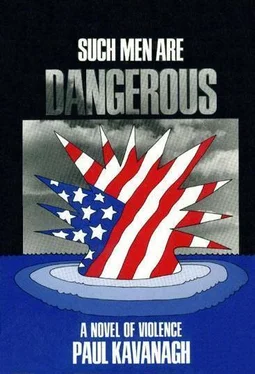
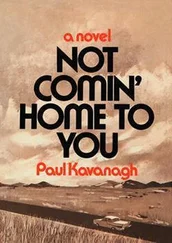

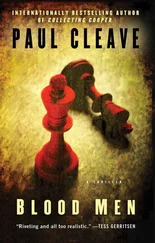


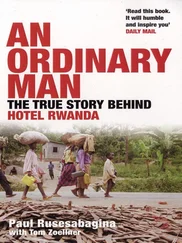

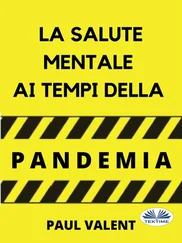

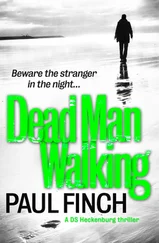
![Paul Finch - A Wanted Man [A PC Heckenburg Short Story]](/books/702381/paul-finch-a-wanted-man-a-pc-heckenburg-short-sto-thumb.webp)
